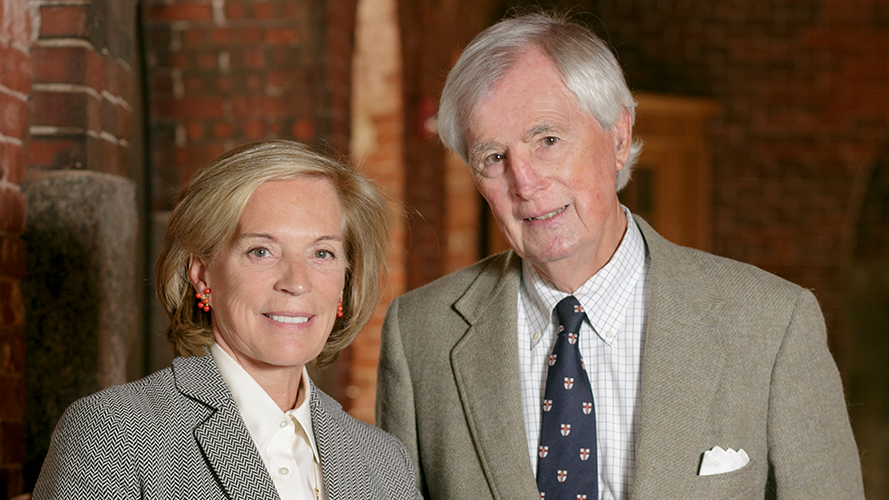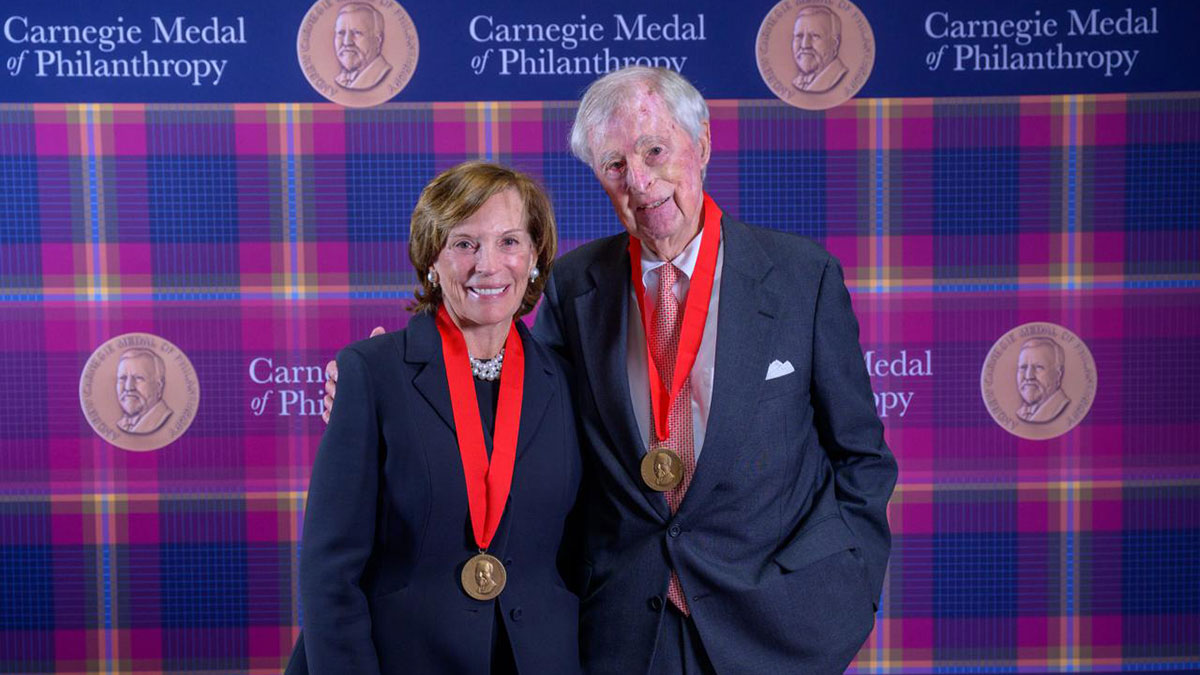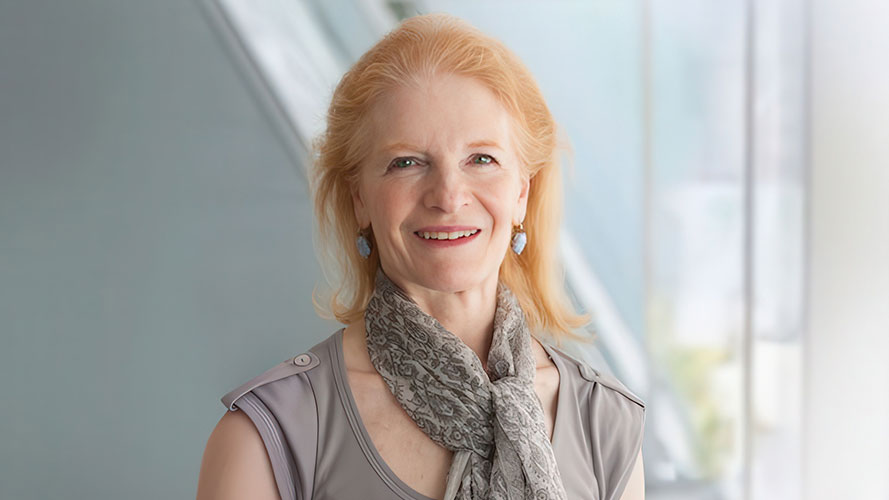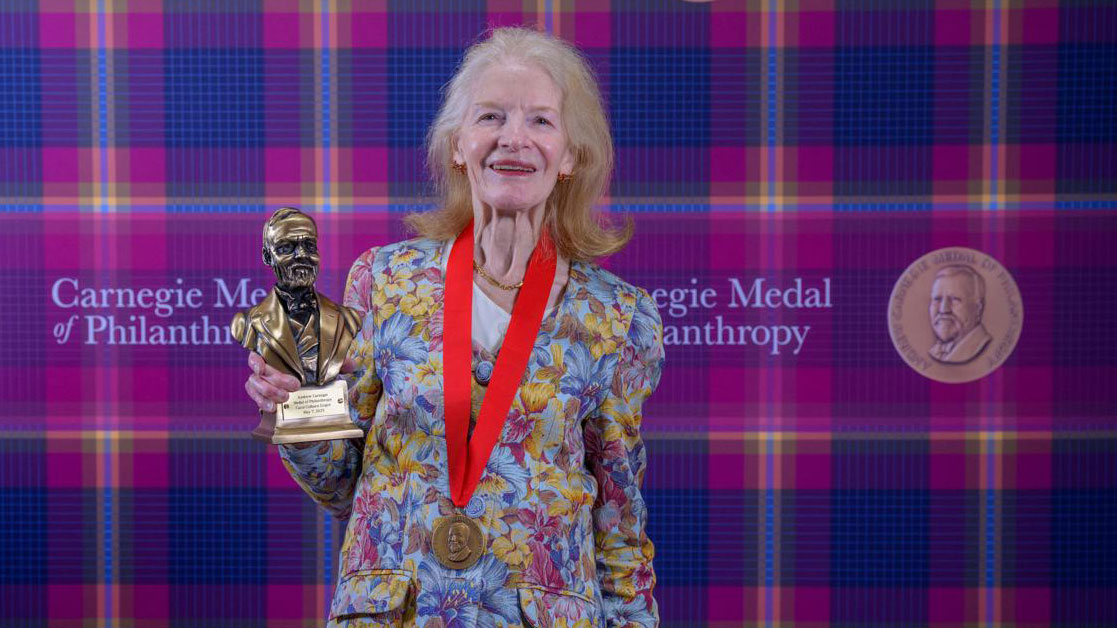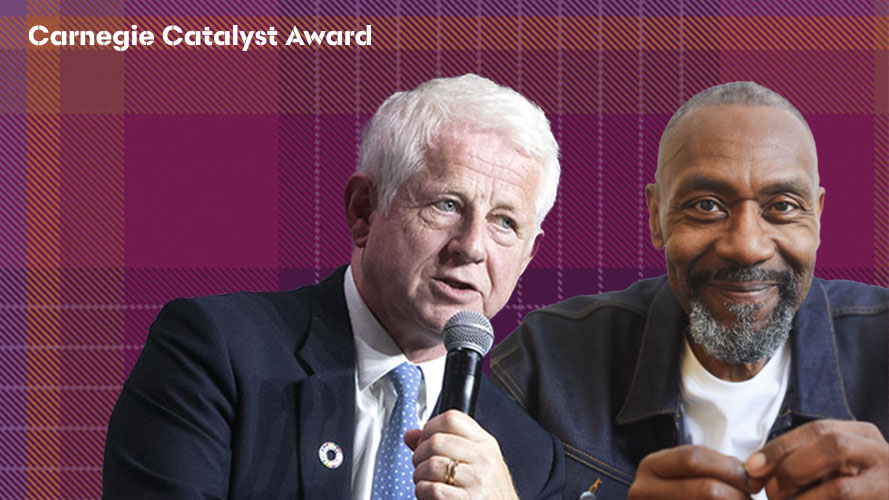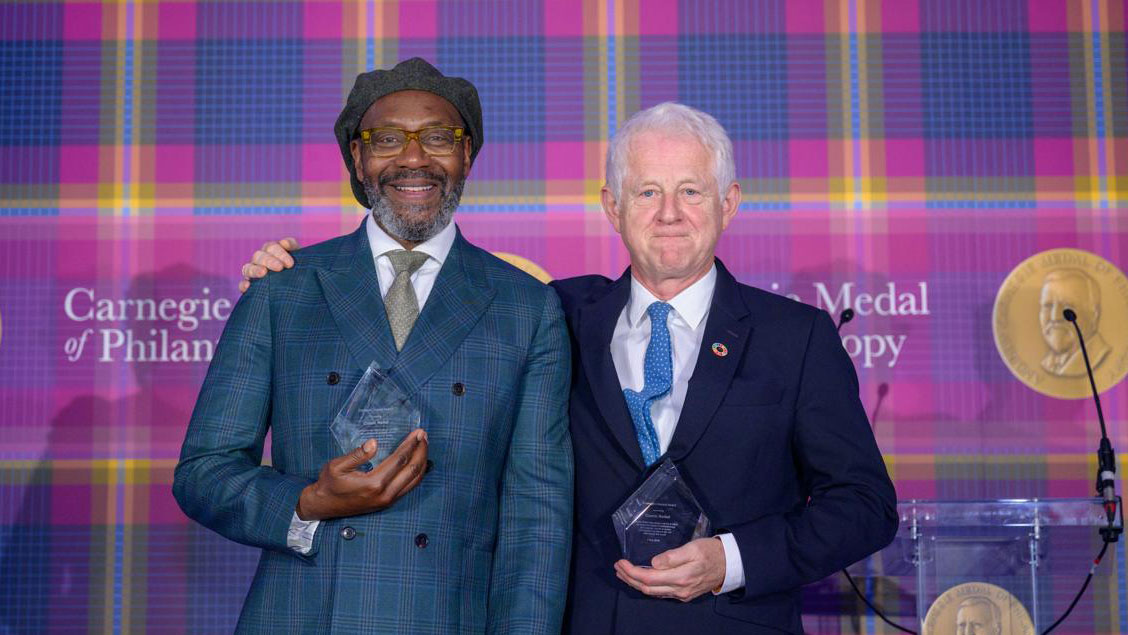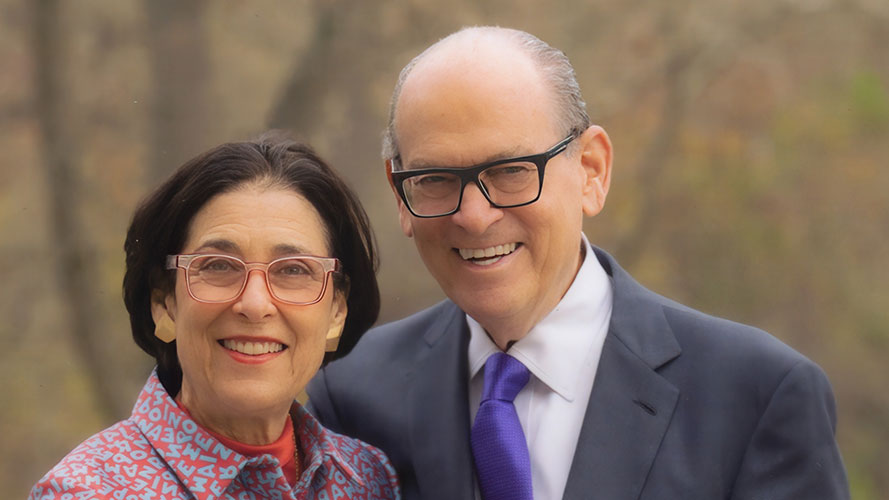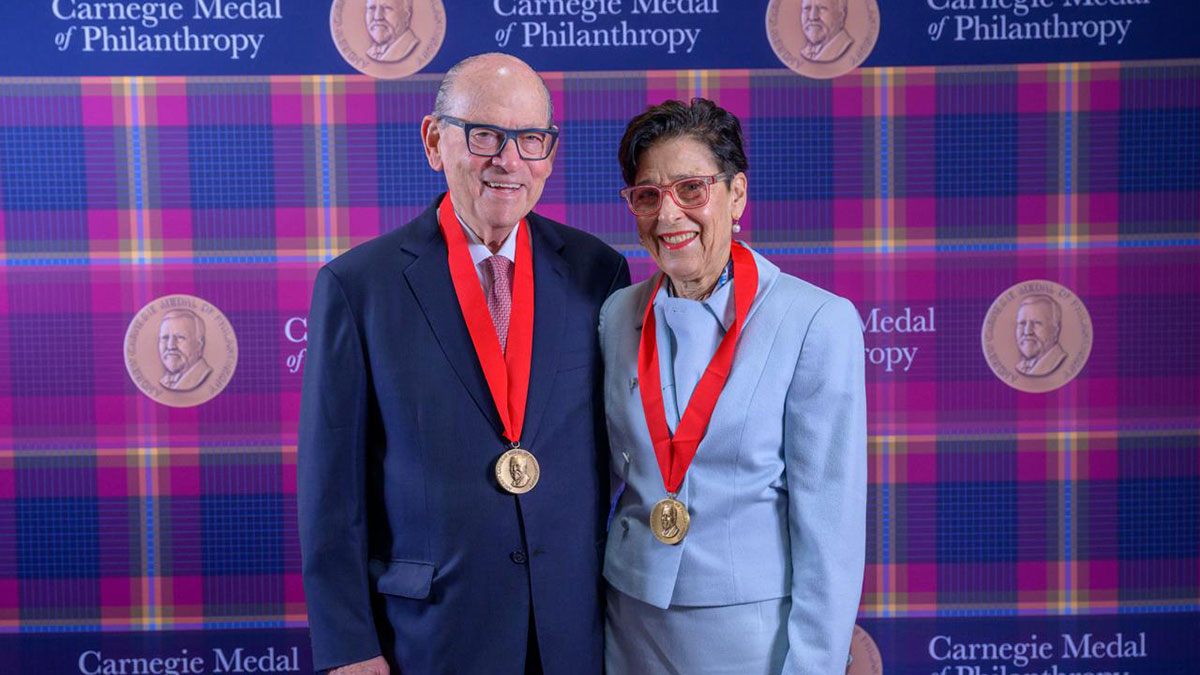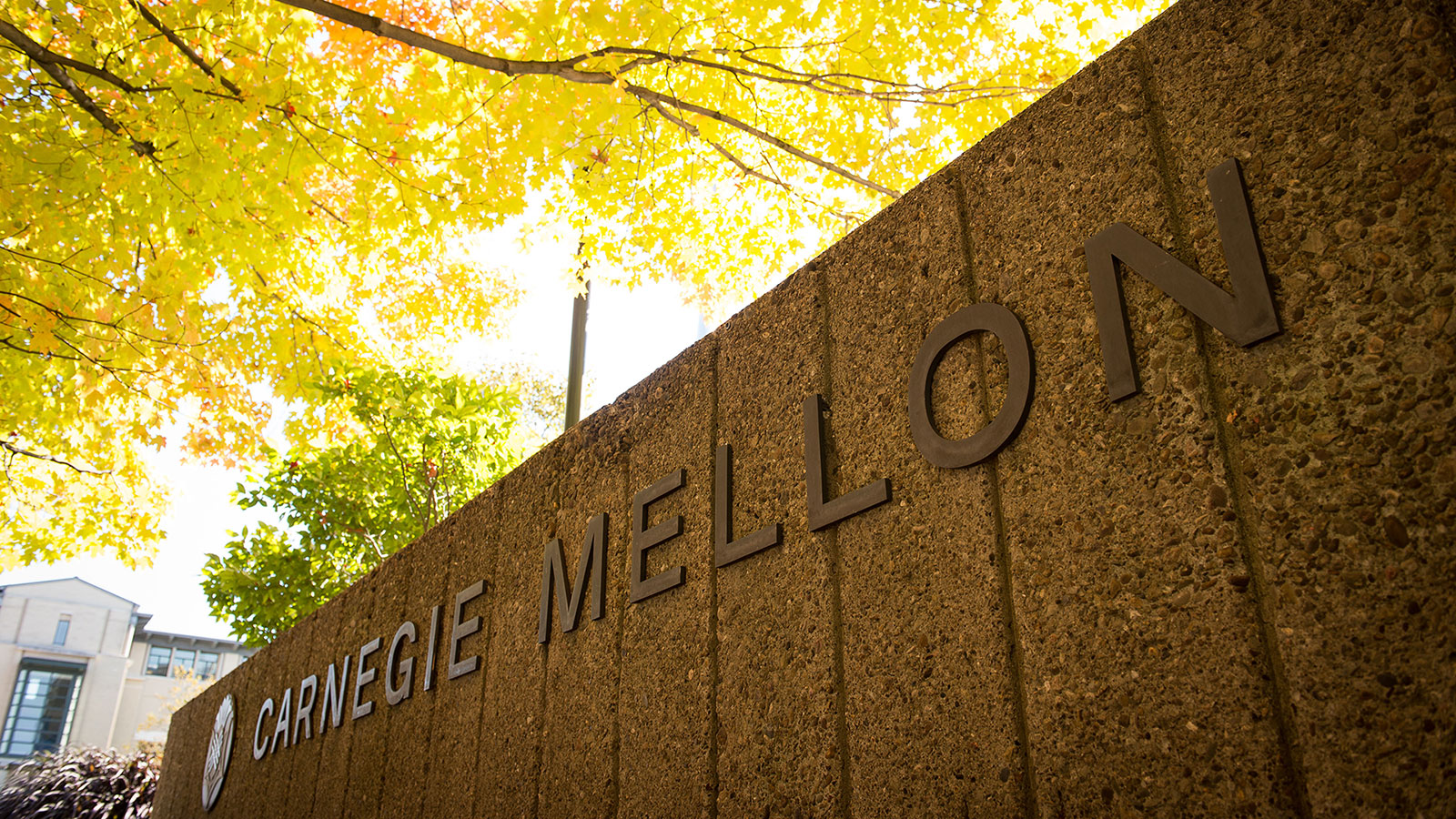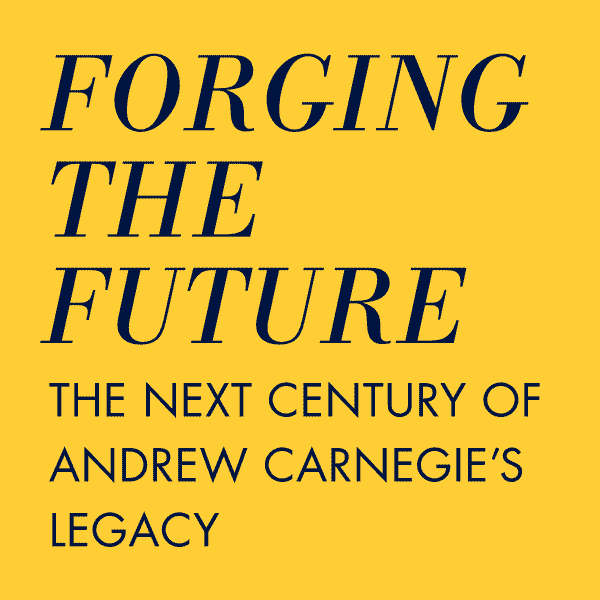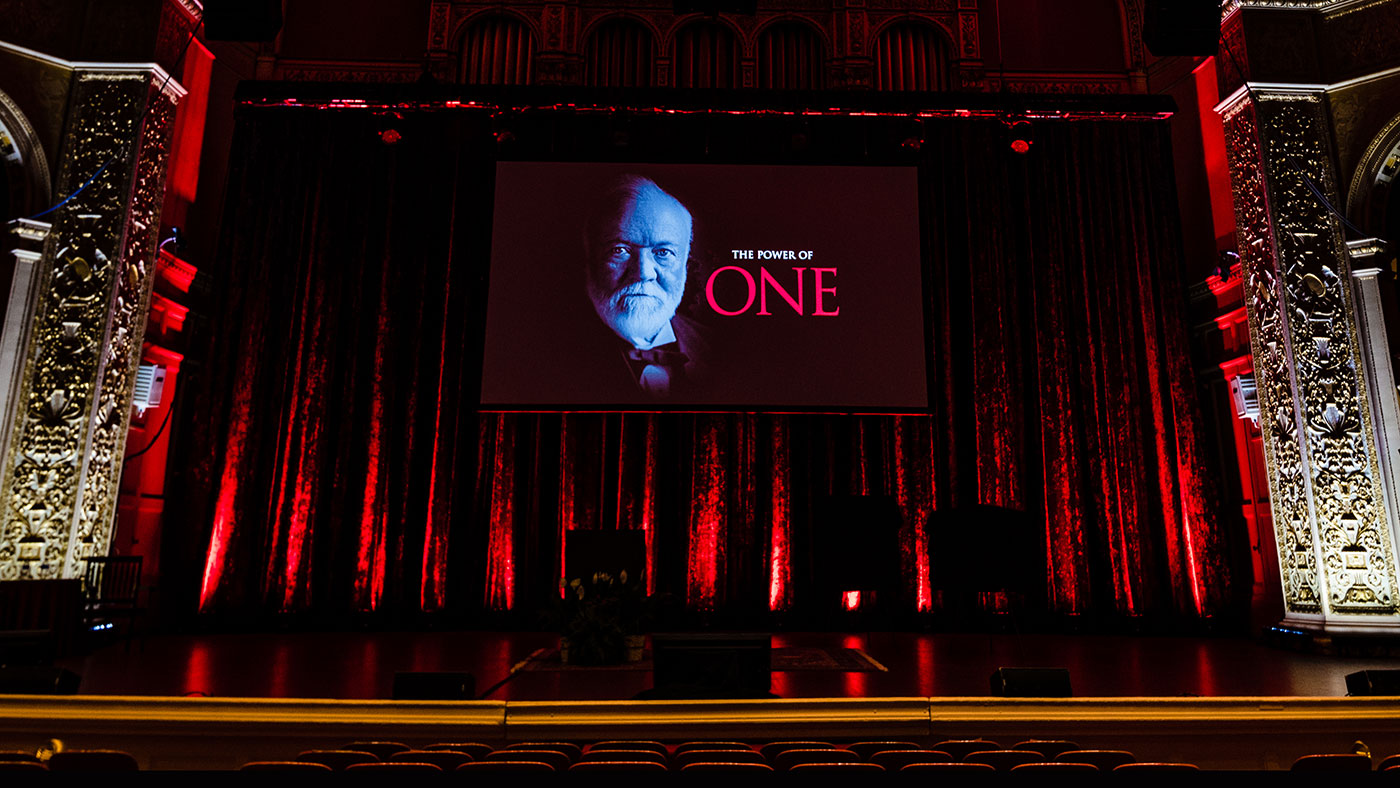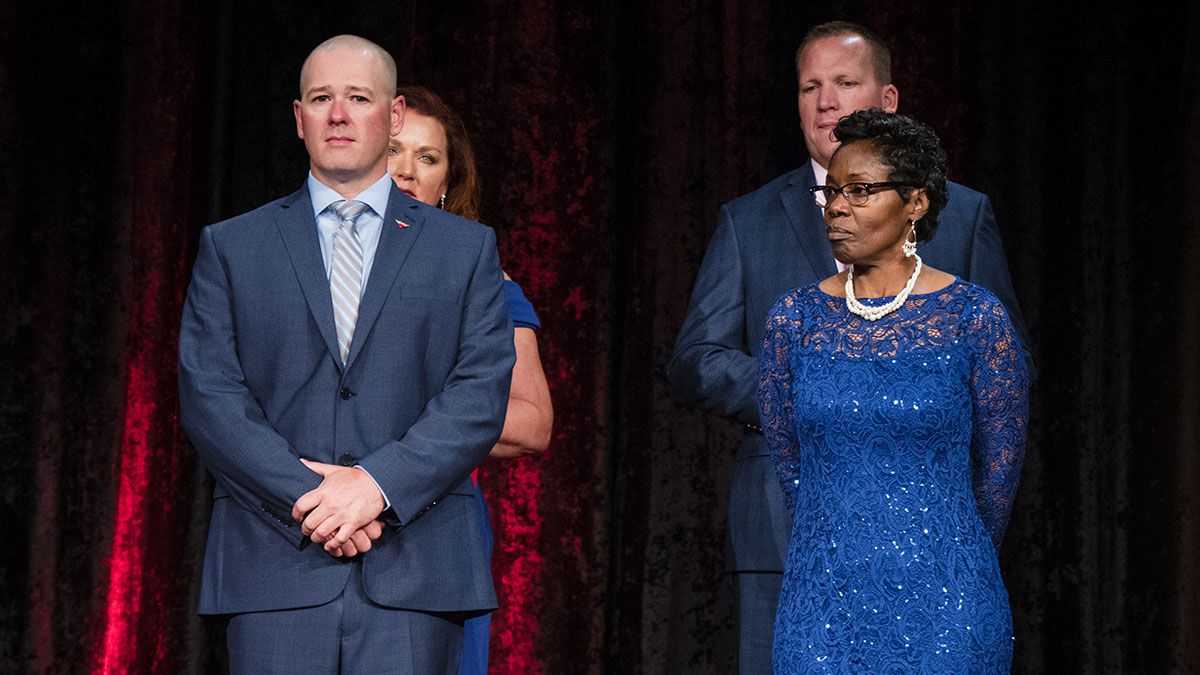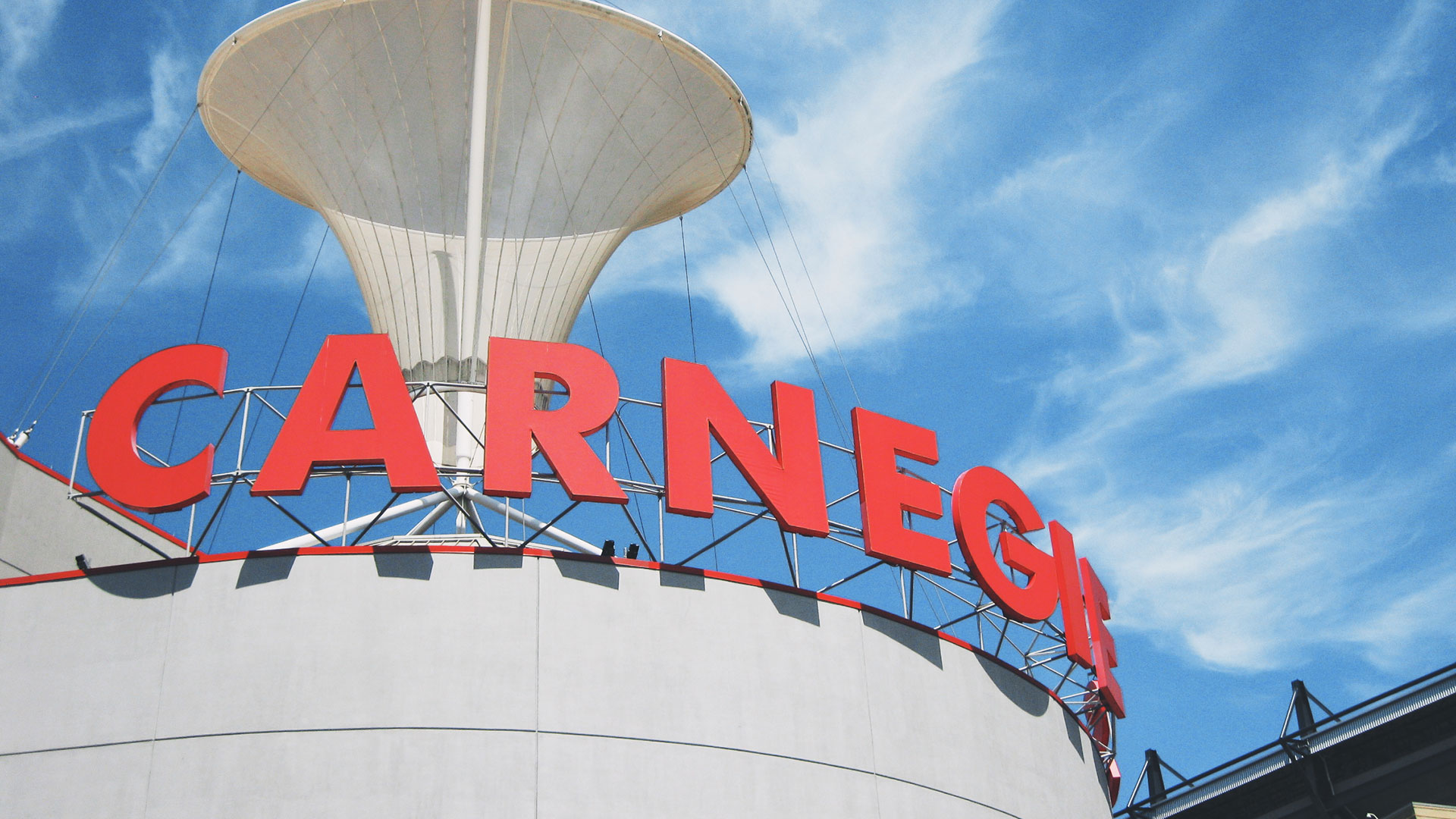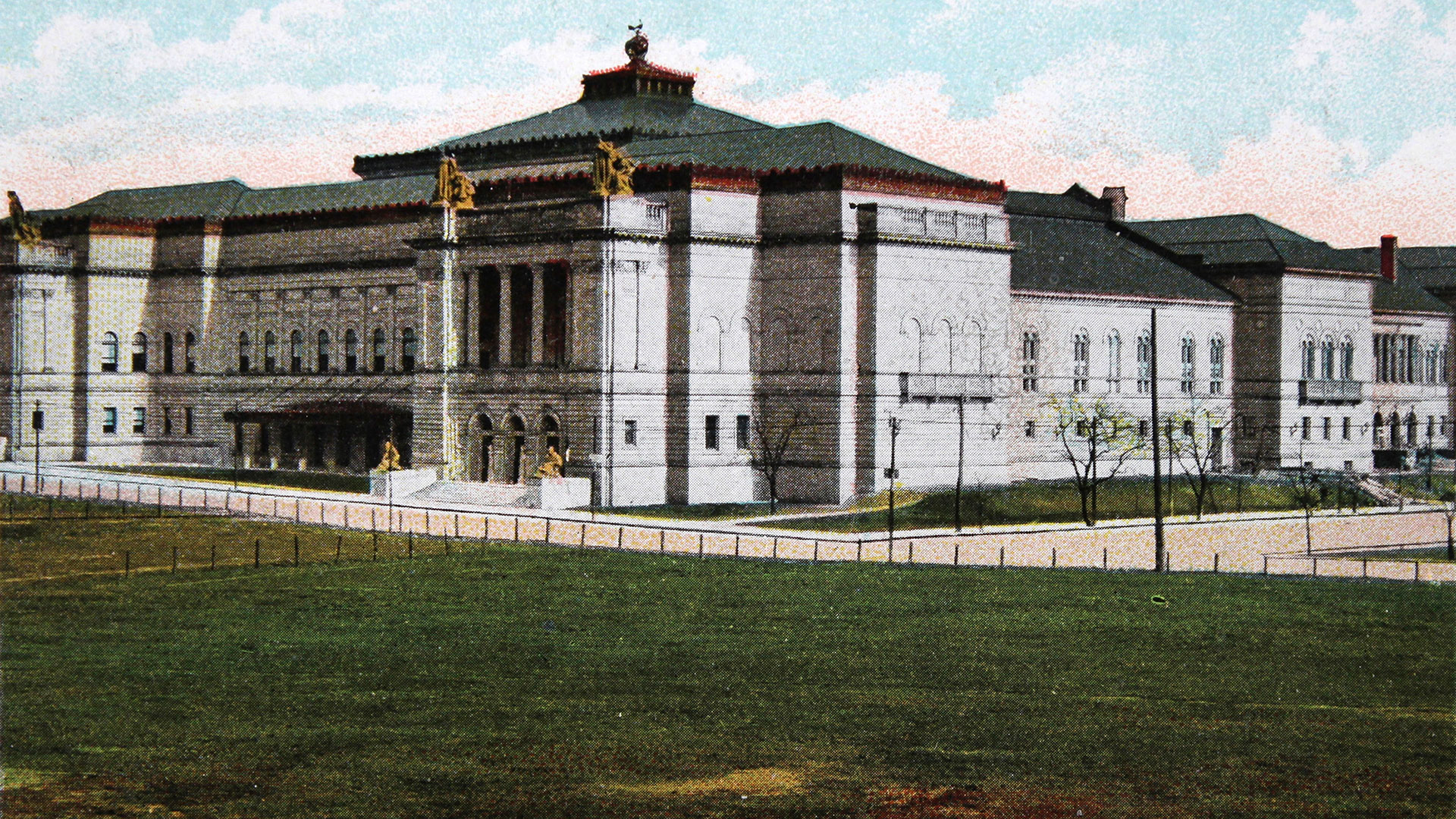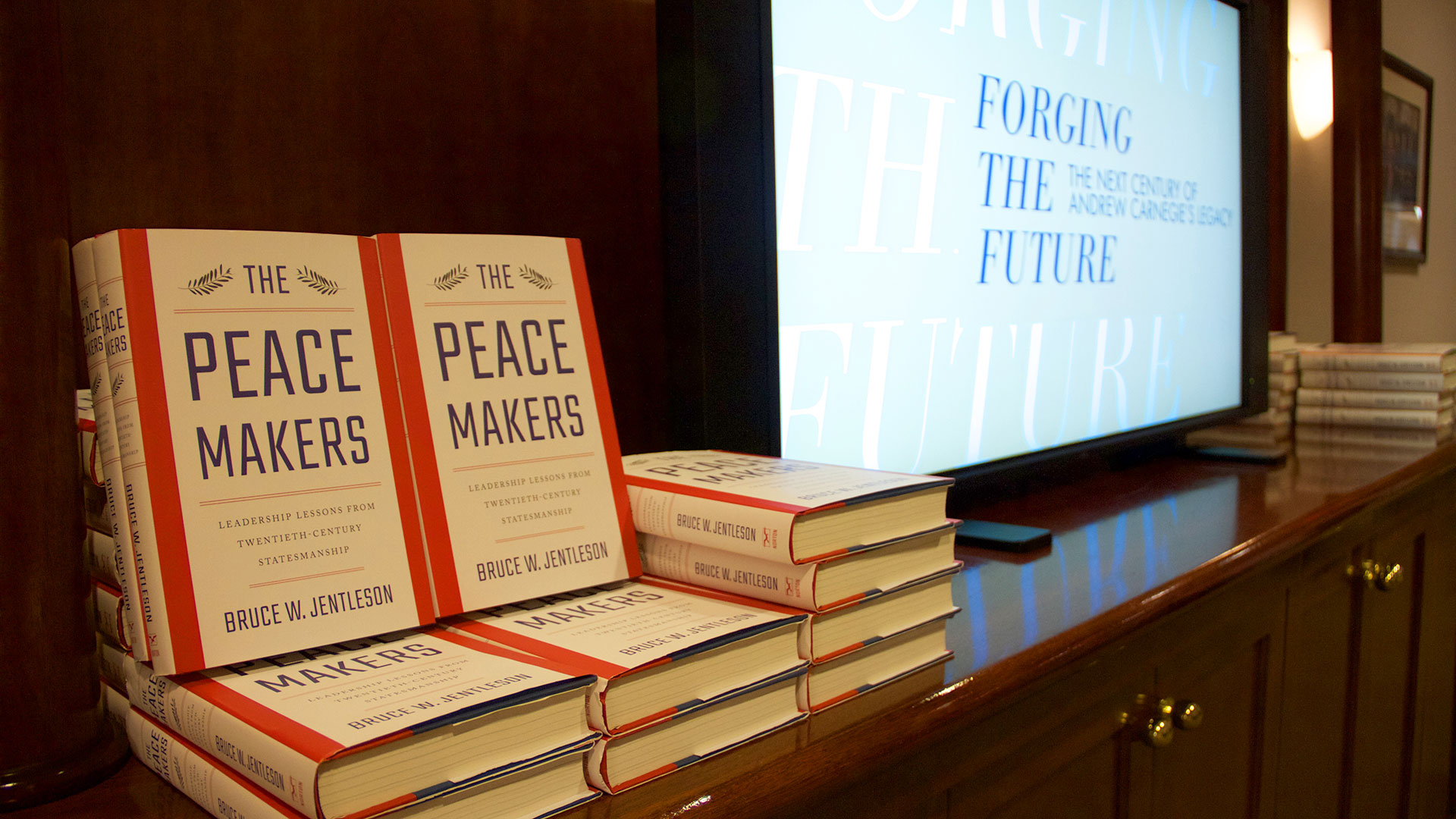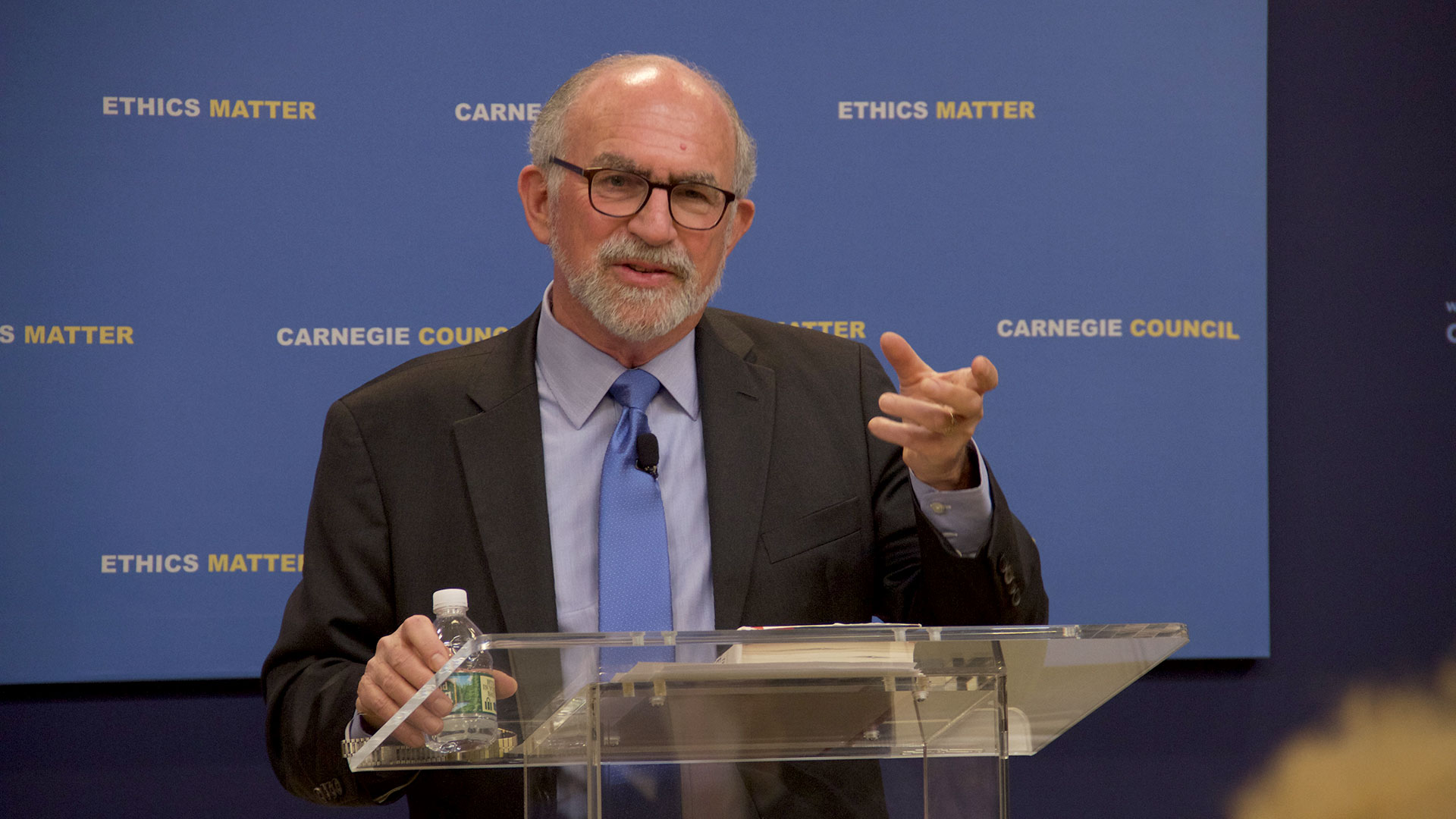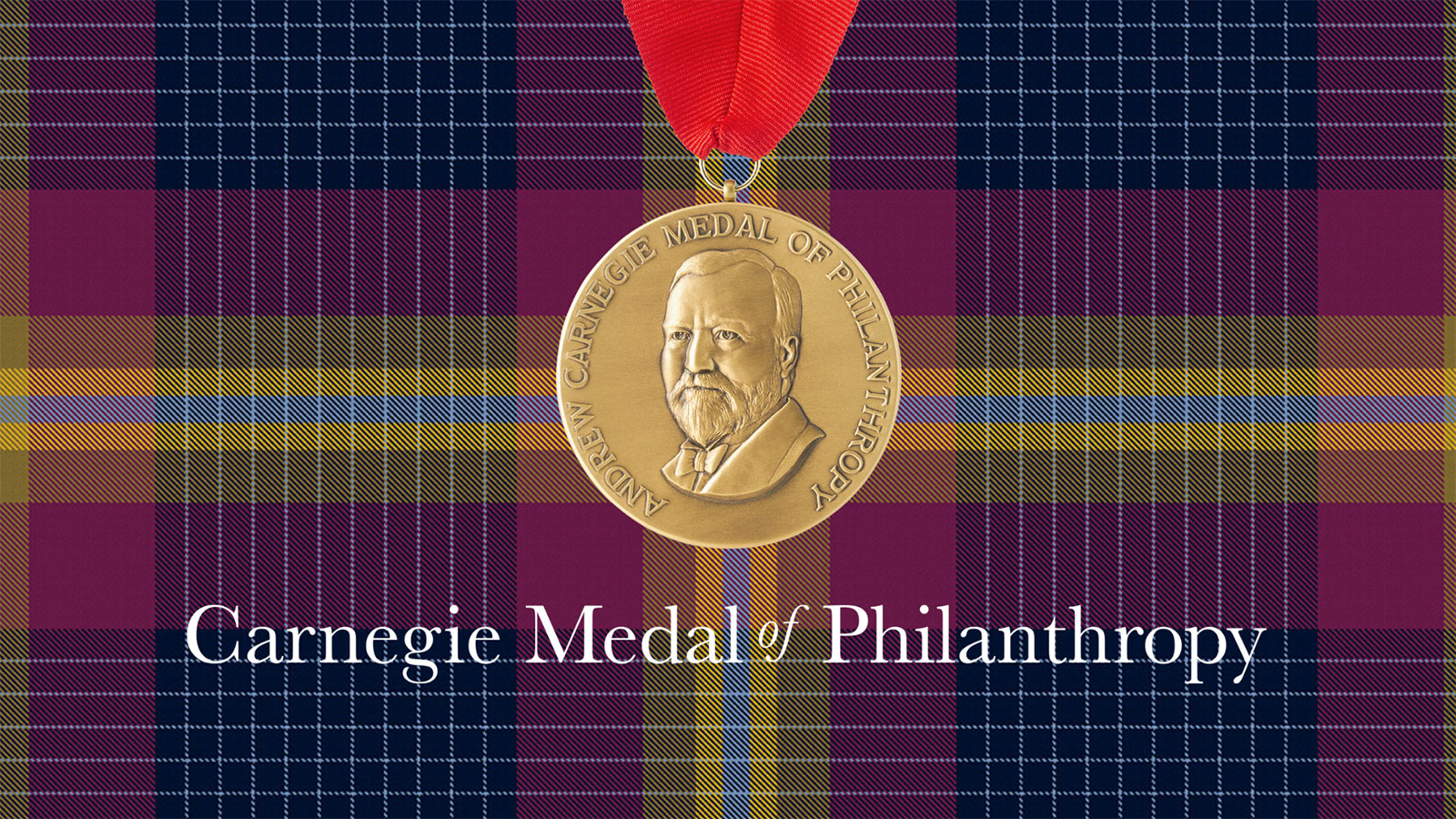
NEWS RELEASE
Philanthropists Driving Global Change Celebrated in Edinburgh Ceremony
Comic Relief, cofounded by Sir Lenny Henry and Richard Curtis CBE, among honorees at the Carnegie Medal of Philanthropy ceremony
MAY 7, 2025 — Today, five philanthropists and one nonprofit organization were recognized at a private ceremony in Edinburgh for their vision and generosity in addressing some of the world’s most pressing challenges.
The international family of Carnegie institutions gathered in Scotland — the birth country of their founder, 19th-century philanthropist Andrew Carnegie — to celebrate the achievements of the 2025 Carnegie Medal of Philanthropy recipients:
- Carol Colburn Grigor CBE, recognized for her commitment to supporting the arts and cultural life across the United Kingdom, Ireland, the United States, and Australia.
- Barbara and Amos Hostetter, acknowledged for their leadership and lasting impact through the Barr Foundation, which has granted over $1.5 billion to climate, education, and the arts since 1997.
- Joe Neubauer and Jeanette Lerman-Neubauer, honored for their lifelong contributions to education, public safety, and the arts.
The British charity Comic Relief received a Carnegie Catalyst Award for its pioneering use of entertainment and collective action to raise more than £1.6 billion to address poverty and inequality in the United Kingdom and internationally. Cofounders Sir Lenny Henry and Richard Curtis CBE accepted the award and a $50,000 grant on the organization’s behalf.
Accepting the award, Richard Curtis CBE said: “Both Lenny and I are deeply honored to accept the Carnegie Catalyst Award on behalf of Comic Relief. When we began our journey back in 1985 our primary goal was to be exactly that — a catalyst for charitable efforts across the U.K. and beyond.”
“We didn’t set out to be personally recognized; we intended to make change and encourage others to do the same. We’re proud that, over the last 40 years, funds raised by Comic Relief have supported some of the most vital services and organizations across the U.K. and internationally, and to be recognized as a philanthropic catalyst by the Carnegie institutions is a major accolade for us.”
“It means a lot to us to accept this award for our efforts in driving a culture of charitable change — for me the award is an acknowledgement of the kindness and generosity of every single person who has, in some way or another, been involved with Comic Relief over the years — and the value of every single pound that has been donated.”
The award ceremony took place at the historic Signet Library in Edinburgh.
Gillian Taylor, CEO of Carnegie Dunfermline and Hero Fund Trust, one of the host organizations, said: “It has been an honor to welcome the Carnegie family of institutions and this year’s recipients back to Scotland for the first time in ten years. Today’s events truly highlighted the extent to which generosity and action can shape the future, and we are proud as an institution to continue to drive change decades on from our founders’ efforts.”
Dame Louise Richardson, president of Carnegie Corporation of New York, said: “It has been an inspiration to gather in Andrew Carnegie’s native Scotland to celebrate this year’s medalists and Catalyst Award recipients. The honorees are exemplars of philanthropy that, in the words of Carnegie, help ‘bend the universal tree of humanity a little in the direction most favourable to the production of good fruit.’”
The 2025 ceremony was hosted collaboratively by the three U.K.-based Carnegie institutions: Carnegie Dunfermline Trust, Carnegie UK, and The Carnegie Trust for the Universities of Scotland. It marks the third time that the Carnegie Medal of Philanthropy has been awarded in the U.K. since its inception in 2001.

